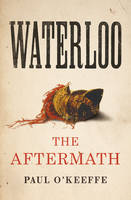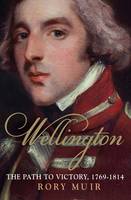 The 18th of June this year is the bicentenary of the legendary Battle of Waterloo. This was the battle that gave us hundreds of places named after the Duke of Wellington, a London train station, a dramatic Sharpe story and and a classic Eurovision winner. But what was it all about?
The 18th of June this year is the bicentenary of the legendary Battle of Waterloo. This was the battle that gave us hundreds of places named after the Duke of Wellington, a London train station, a dramatic Sharpe story and and a classic Eurovision winner. But what was it all about?
The Napoleonic Wars, which had begun in the aftermath of the French Revolutionary Wars, raged across Europe for well over a decade. Napoleon had emerged as a charismatic leader of the French, being crowned Emperor in 1804, and wanted to dominate Europe. Although defeated by Nelson at the Battle of Trafalgar in 1805 it wasn't until 1814, following campaigns such as the Peninsular War and with all of Europe against him, that Napoleon was defeated and exiled to the island of Elba off the Italian coast.
 Dramatically, Napoleon escaped, took back France and - outside a small town in Belgium - met a combined force of British, Prussians and other allies led by Wellington and Marshal Blücher in a showdown to decide the direction Europe would take. To paraphrase Wellington, the battle was a 'close run thing', with Prussian support arriving when the British were in dire need. It was also a brutal encounter, with many thousands killed or maimed.
Dramatically, Napoleon escaped, took back France and - outside a small town in Belgium - met a combined force of British, Prussians and other allies led by Wellington and Marshal Blücher in a showdown to decide the direction Europe would take. To paraphrase Wellington, the battle was a 'close run thing', with Prussian support arriving when the British were in dire need. It was also a brutal encounter, with many thousands killed or maimed.
Following his final defeat Napoleon was exiled to St Helena in the South Atlantic Ocean. This time there was to be no escape.
There are many important anniversaries to remember this year and Waterloo may seem remote, yet when the centenary of the battle took place, the Gallipoli Campaign was only a few weeks old. If Napoleon had won the battle the balance of European and world power would have been markedly different.




Add a comment to: Waterloo – a decisive battle